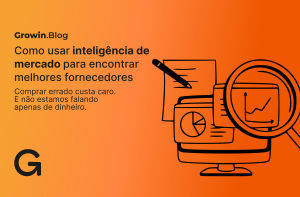In today’s rapidly evolving business environment, Artificial Intelligence (AI) is not just a luxury but a necessity, particularly in the supply chain sector. A recent episode of GrowinCast, a podcast by GrowinCo., with Raphael Traticoski and Nilay Parikh, CEO at Arvist, provides profound insights into how AI is transforming the supply chain, especially within the food and beverage industry.
The Imperative for AI in Supply Chains
The supply chain industry, characterized by complex operations and thin profit margins, faces numerous challenges, including labor shortages, quality control issues, and the need for efficient resource management. As Nilay Parikh points out, three out of four warehouses experience difficulties in staffing, particularly at the floor level. This is exacerbated by a disinterest among the newer generation in warehouse jobs, making traditional operations unsustainable.
Moreover, quality issues are paramount, as they directly affect customer retention and satisfaction. In a competitive market, failing to deliver high-quality products consistently can lead to significant customer churn. These operational challenges underscore the necessity for innovative solutions like AI to streamline processes and improve outcomes.
AI Solutions in Action
Arvist, under Parikh’s leadership, leverages AI to enhance the efficiency and quality of warehouse operations. By utilizing data from existing infrastructure such as security cameras and ERP systems, Arvist’s AI platform provides real-time insights that significantly improve operational decisions. This integration addresses several key areas:
- Labor Efficiency: AI helps mitigate the impact of labor shortages by automating routine tasks and optimizing staff allocation. This not only covers the gap caused by staffing shortages but also enhances the productivity of existing employees.
- Quality Control: Through instant quality checks and predictive maintenance, AI systems ensure that products meet stringent quality standards, reducing waste and preventing potential losses due to defects or non-compliance.
- Cost Management: One of the critical advantages of integrating AI in supply chains is the ability to maintain, if not improve, profit margins. By automating processes and reducing the need for expensive hardware upgrades, companies can manage costs more effectively while enhancing operational capabilities.
Real-World Impact and the Future of AI in Supply Chains
Parikh shares a compelling example where AI was utilized to detect and manage damaged pallets in real-time, significantly reducing monthly losses for a warehouse. This not only exemplifies AI’s capability to enhance operational efficiency but also highlights its role in augmenting human workers rather than replacing them.
Looking forward, the potential for AI in the supply chain is vast. As technologies evolve, the integration of AI is expected to deepen, with more sophisticated solutions emerging for predictive analytics, resource management, and even training through augmented and virtual reality. These advancements promise to further revolutionize the supply chain, making operations more resilient, efficient, and customer-centric.
Final thoughts
The integration of AI into supply chain operations is not just a trend but a transformative shift that addresses longstanding challenges and opens up new avenues for innovation and growth. As illustrated in the discussion between Traticoski and Parikh, AI not only solves immediate operational problems but also sets the stage for future advancements. Businesses that embrace this technology will likely lead the charge in redefining industry standards and achieving sustained success in the competitive market landscape.
Tune in
Dive deeper into the transformative role of AI in the supply chain by tuning into the “Growing Casts” podcast on Spotify! Join host Raphael Traticoski and guest Nilay Parikh as they explore real-world AI applications that are revolutionizing efficiency and quality in the food and beverage industry. Don’t miss out on these invaluable insights—click to listen now and elevate your understanding of AI’s impact on supply chain management.




